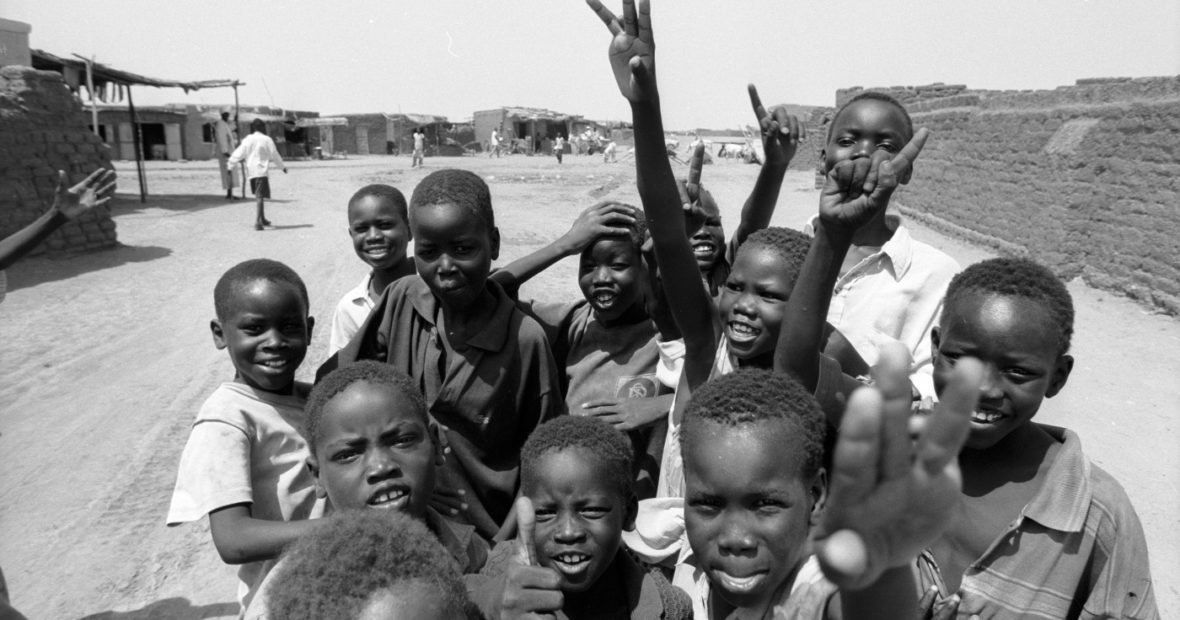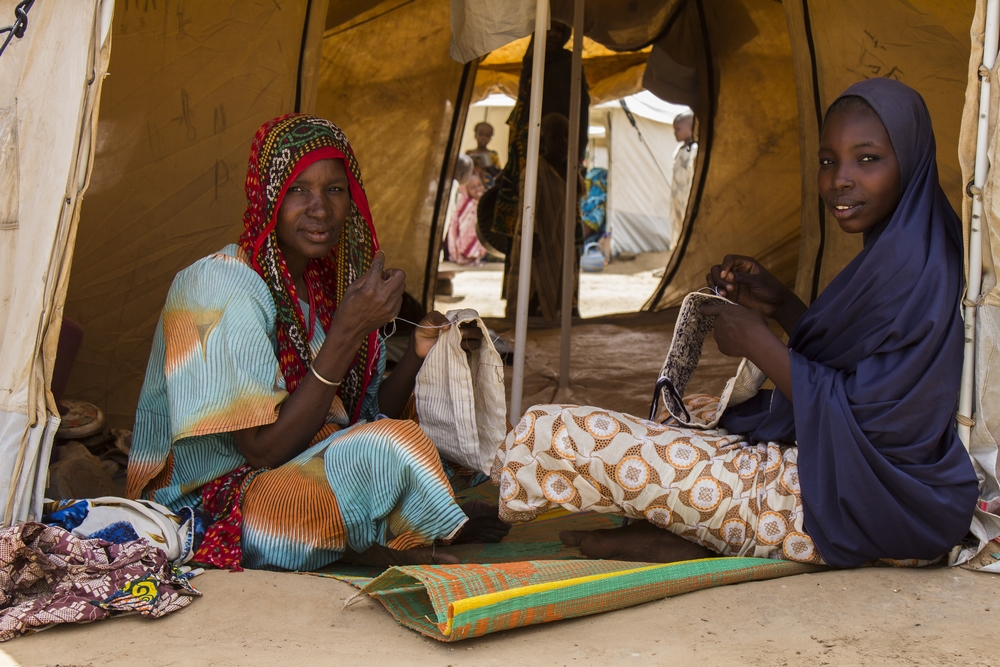In the words of the UN Secretary General, ‘Leaving no one behind’ “is a central aspiration of most political, ethical or religious codes and has always been at the heart of the humanitarian imperative” (¶ 72). In the world of humanitarian relief, we leave people behind every day. It isn’t pretty.
On my first mission, as project coordinator in Khartoum way back in 1999, I found myself informing about 250 internally displaced persons (IDPs) in Omdurman el-Salaam camp that MSF would be closing its health centre. I explained how the situation in the camp had improved to some degree, that there were other parts of Sudan with greater needs, that MSF was bound by the principle of impartiality to leave, and that this was the same principle that had brought us to Omdurman el-Salaam in the first place.
Naïve, a bit smug in the correctness of my position, I expected some initial grumbling, to be followed by tributes, appreciation for the high-quality services provided and perhaps lunch. I departed about two hours later, frustrated, sad and brimming with self-righteous indignation after having been called a murderer many times over, and told that MSF would carry the blood of their children on its hands.
The World Humanitarian Summit’s Core Commitment to ‘Leave no one behind’ constitutes neither a humanitarian imperative nor an option. In the heart of crisis, needs almost always exceed response, essentially obligating aid agencies to implement painful choices – deciding where to deliver aid includes a decision where not to deliver aid. The principle of impartiality dictates that choice. It even tells us who to leave behind: as Jean Pictet put it, humanitarian action “makes no discrimination as to nationality, race, religious beliefs, class or political opinions. It endeavours to relieve the suffering of individuals, being guided solely by their needs, and to give priority to the most urgent cases of distress.”
Those most in need come first
For half of impartiality, there seems to be good news. Humanitarian agencies treat non-discrimination in aid as a red line at project level, ensuring that services or distributions reach individuals without regard to race, religion, ethnicity, etc. What about the definition’s second half? Impartiality prohibits discrimination and requires aid agencies to identify and prioritize those most in need. Is this impartiality’s forgotten clause – ‘forgotten’ in the sense of being voiced with little regard to its implications for operations?
Critics often call attention to the weakness of impartiality at a global level, highlighting the degree to which aid funding disproportionately follows the political and economic interest of the main donors. At the context level, though, impartiality seems challenged by the evolution of humanitarian practice itself. Too often, needs assessment slips into a logic of finding those with (some) identifiable needs, not those most in need, or finding those with needs corresponding to supply, to the stuff that the agency has to offer. Tellingly, the World Humanitarian Summit consultation process revealed widespread discontent among people affected by crisis – with surveys showing only 27% agreeing that aid received met their primary needs.
Similarly, a number of trends and factors within the humanitarian sector collide with impartiality in ways that raise important yet largely ignored questions. When crisis strikes, how does and how should impartiality relate to program choices for agencies already operating in the country (e.g. doing development work); who already have connections to a specific community or geographic location? If the needs are greater elsewhere, does impartiality not require the organization to shift its relief effort to that place? Or would it make more sense to remain in a location that is familiar, where the agency is trusted and has existing infrastructure? That seems logical from an operational standpoint, but arguably functions to create constituencies of preferred aid recipients, where distribution is not at all based on need alone but depends on a variation of ‘who you know’.
Thorny questions abound. How does agency specialization affect impartiality? As I have discussed before, do agencies looking for the needs of children even see the needs of the elderly? And yet, again, specialization brings with it considerable advantages. Further, as MSF has argued, does the pressure to be successful, whether imposed by donor contracting or simply internal agency dynamics, push the delivery of aid toward easier-to-reach populations, closer to central hubs, and away from the uncertainties inherent in trying to address the needs of the most vulnerable?
Even policies as commonsensical as ‘value for money’ may impact on impartiality, because reaching those with the greatest need will usually incur greater costs. A discussion at an MSF HIV/AIDS project in Zimbabwe illustrates this point. When asked, the team clearly explained that the most urgent cases had to be the HIV-positive street children, whose situation was truly shocking. But the resources necessary to reach them and maintain their participation in the treatment program were deemed prohibitive, because substantially higher numbers would have to be left out of the program. So the program focused elsewhere. A tough lesson: distributive justice does not necessarily align with impartiality.
Impartiality is an aspiration, not an operational principle
In practice, the principle of impartiality plays a dual role for humanitarians, at once a defining characteristic or ethic of the trade and an obligation that shapes crucial decisions. In practice, impartiality constrains the urge to help everyone because capacity constrains the ability to do so. Critically, impartiality is an ideal. Its perfect form exists in lectures and textbooks, not in the messy world of humanitarian crisis. Compromise is therefore unavoidable. To maintain the integrity of the principle, then, we should establish agreed standards or best practice guidelines. Perhaps we can define red lines that should not be crossed in terms of leaving the most urgent cases behind. The point is to ensure these compromises and trade-offs are recognized and deliberate, rather than the unseen by-product of humanitarian decision-making.
Compromise, though, implies acknowledging what is at stake to begin with. Yet far more discussion and analysis focuses on the independence and neutrality of the sector than on its impartiality. Always highly touted as an ethical foundation and inviolable principle, impartiality takes on even greater importance today as people affected by crisis progressively insist that aid should do a better job of meeting their needs. That mounting shift may prove to be one of the defining dynamics of the next decade of humanitarian aid. With that in mind, we need to ensure that Leave no one behind remains a moral principle, an aspiration, not an operational principle and certainly not an excuse to treat everyone’s needs as of equal urgency.
Currently an independent humanitarian consultant, analyst and blogger, last year Marc DuBois co-authored The Ebola Response in West Africa, Exposing the politics and culture of international aid for the Overseas Development Institute. Prior to consulting, Marc spent 15 years at Médecins sans Frontières, primarily in humanitarian affairs, policy and management, and was the Executive Director of MSF-UK (2008 to 2014). Marc blogs regularly at www.humanicontrarian.com and can be found on twitter @humanicontraria.






Terrific thinking
Marc is right in saying that when humanitarians look for the needs of children, they are unlikely to see the needs of older people. It’s the same when they look for the needs of women or the disabled. It’s odd when you consider there are now more people aged over 60 than children under 5 in the world; and that almost a quarter of women in the world are aged 50 or over; or that almost half of all older people have a disability. Even Jean Pictet apparently didn’t consider age (or gender) as potential grounds for discrimination alongside nationality, race, religious beliefs, class and political opinions.
An understanding of the age and gender profile of a population affected by conflict or disaster is one of the basic, practical steps required to operationalise the principle of impartiality and reach the most vulnerable people with the assistance that they need.
The collection of properly disaggregated data is one of five basic, practical steps that have been identified as necessary to ensure assistance addresses the needs of the most vulnerable and marginalised people. The other steps relate to participation and consultation, funding, capacity and skills, and coordination.
These five measures have been compiled to produce a new ‘Inclusion Charter’ and it is getting growing support from international and national organisations. The signatories hope to gather enough engagement and support for the Inclusion Charter in the World Humanitarian Summit for it to make a genuine practical contribution to the operationalisation of the principle of impartiality. Organisations are encouraged to sign up at http://www.inclusioncharter.org/